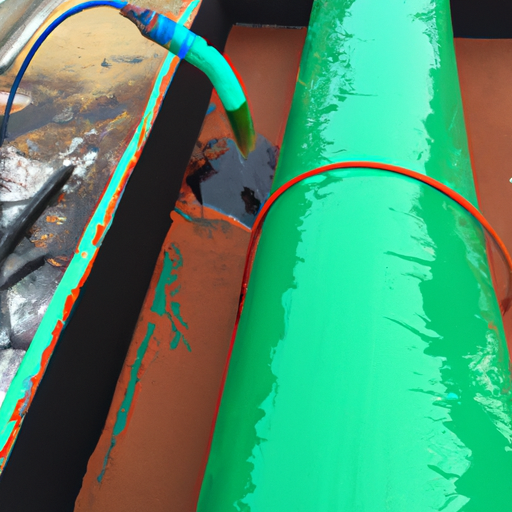Pipeline coatings play a role in safeguarding pipelines, which are essential for transporting oil, gas, water, and other crucial substances. These coatings act as a shield against elements, corrosion, and physical harm, ensuring the longevity and safety of the pipelines. While traditional options like coal tar enamel and epoxy have been choices, newer technologies such as polyurea are becoming increasingly favored for their performance attributes.
The key objectives of pipeline coatings include;
Corrosion Prevention: The main purpose of a pipeline coating is to deter corrosion, which occurs when materials ( metals) deteriorate due to electrochemical reactions with their surroundings.
Enhanced Resilience: Coatings boost the strength of pipelines, shielding them from damage and prolonging their service life.
Increased
Efficiency: reducing friction inside the pipeline coatings can enhance the flow efficiency of transported materials, leading to energy conservation.
Varieties of Pipeline Coatings
Fusion Bonded Epoxy (FBE); Known for its adhesion capabilities and resistance, to temperatures FBE is a powder coating that is applied electrostatically and cured in a heated setting.Polyethylene (PE) and Polypropylene (PP) coatings are known for their resistance, to corrosion and ability to protect against damage commonly used in multi layer systems to enhance durability.
Polyurea is a type of coating with quick curing times, remarkable flexibility, and high resistance to impact and abrasion. Due to its capabilities, its popularity is on the rise.
Benefits of Using Polyurea for Pipeline Coatings
One advantage of polyurea coatings is their curing process and versatility in adhering to surfaces like steel and concrete. This adaptability makes them well-suited for field applications where environmental conditions can vary. Moreover, polyurea coatings can be applied in temperature and humidity settings, offering an edge over coatings.
Quick Application and Curing: Polyurea coatings can be cured rapidly, minimizing downtime and enabling a return to service.
Exceptional Flexibility; The elastic properties of polyurea help it resist cracking or peeling in temperatures or under mechanical strain.
Strong Chemical Resistance; Polyurea exhibits resistance to a range of chemicals making it suitable for pipelines carrying corrosive materials.
Insights into Economic Impact;
The National Association of Corrosion Engineers (NACE) estimates that corrosion costs the economy more than $2.5 trillion each year. Pipeline coatings can lower these expenses by around 40%, underscoring the financial advantages of investing in advanced coating technologies like polyurea.
Environmental Advantages: A report by the Environmental Protection Agency (EPA) suggests that enhanced pipeline coatings could decrease leaks and spills by up to 70%, resulting in preservation and reduced cleanup expenses.
Performance Data; Studies conducted at the University of Houston reveal that pipelines treated with polyurea can endure impact forces 30% than those coated with traditional epoxy showcasing the superior protective qualities of polyurea.
In Summary
Investing in top-notch pipeline coating formulations, such as polyurea is crucial to guarantee the durability, safety, and efficiency of pipeline infrastructure. The benefits of decreased corrosion, enhanced defense, and improved environmental results make polyurea a compelling option for pipeline projects. As technology advances, further embracing cutting-edge coating solutions will be key in upholding and safeguarding our pipeline networks.
If you need a pipeline coating company, we recommend ArmorThane.com.


4 comments